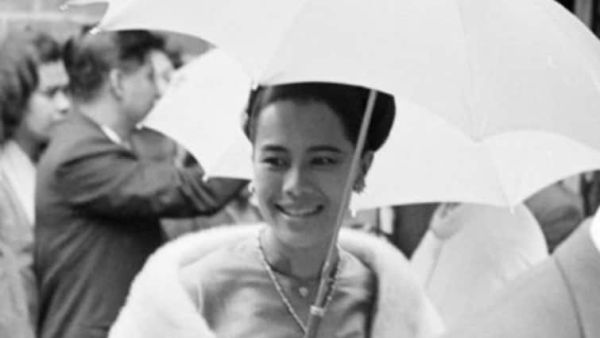
The Royal Household Bureau announced that Queen Sirikit passed away on Friday in a Bangkok hospital, at age 93, where she had been receiving long-term care. She had been battling a blood infection since 17 October, and despite intensive treatment, her condition deteriorated.
She was the mother of the reigning King Vajiralongkorn and wife of the longest-reigning monarch of Thailand.
The King has declared a year-long mourning period.
In recent years, Sirikit had largely withdrawn from public life due to declining health, according to the Associated Press. Her husband, King Bhumibol Adulyadej, Thailand’s revered monarch who reigned for seven decades, died in 2016.
A Beloved Yet Controversial Figure
Though often overshadowed by her late husband and son, Queen Sirikit wielded immense influence and affection across Thailand. Her portrait hung in homes, offices, and temples nationwide, and her birthday, 12 August, was celebrated as Mother’s Day.
Sirikit’s legacy spanned humanitarian efforts, rural empowerment, and environmental protection. She assisted Cambodian refugees, initiated income-generating projects for women, and championed forest conservation, earning the nickname “The Green Queen.”
However, her role occasionally drew scrutiny as Thailand’s monarchy faced growing public debate amid political unrest. Her appearance at the funeral of a protester killed in clashes with police was perceived by some as signalling political alignment, the Associated Press noted.
From Aristocrat To Queen
Born Sirikit Kitiyakara in Bangkok on 12 August 1932, she came from an aristocratic family tied to earlier kings of the Chakri dynasty.
Educated during World War II in a bomb-rattled Bangkok, she later moved to France with her diplomat father. At 16, she met the young King Bhumibol Adulyadej in Paris while studying music and languages.
After he was injured in a car accident, Sirikit relocated to Switzerland to care for him. Captivated by her devotion, the king wrote poetry for her and even composed a waltz titled “I Dream of You.”
They married in 1950, shortly before his coronation, pledging to “reign with righteousness for the benefit and happiness of the Siamese people.”
Life Of Service
The royal couple had four children, King Maha Vajiralongkorn, Princess Ubolratana, Princess Sirindhorn, and Princess Chulabhorn.
In their early years, they travelled extensively as Thailand’s goodwill ambassadors, strengthening ties with global leaders. By the 1970s, their focus shifted to domestic challenges, rural poverty, opium addiction, and communist insurgencies.
Sirikit joined the king on thousands of village visits, often trekking through jungles and mountains. Always elegantly dressed yet approachable, she listened to villagers’ concerns, from health issues to local disputes, and sought ways to help.
Champion Of Rural Women And Heritage
In 1976, she founded the SUPPORT Foundation, which trained thousands of villagers in silk weaving, jewellery making, ceramics, and traditional crafts. The initiative created sustainable livelihoods while preserving Thailand’s cultural heritage.
Through her decades of work, Queen Mother Sirikit became not only a symbol of grace and devotion but also of resilience, a monarch who brought the Thai crown closer to its people.
-
Sabarimala gold theft case: SIT conducts searches in Ballari, Bengaluru

-
Air fryer potatoes will be crispy outside and buttery inside if you follow 1 simple method

-
Lucy Powell elected as Labour's new deputy leader in huge blow for Keir Starmer

-
Princess Kate ignores Prince Andrew furore with personal message - 'Exciting new chapter'

-
Laptop Tips: Why is there this red button in the laptop, 99% people may not know what it is used for?
